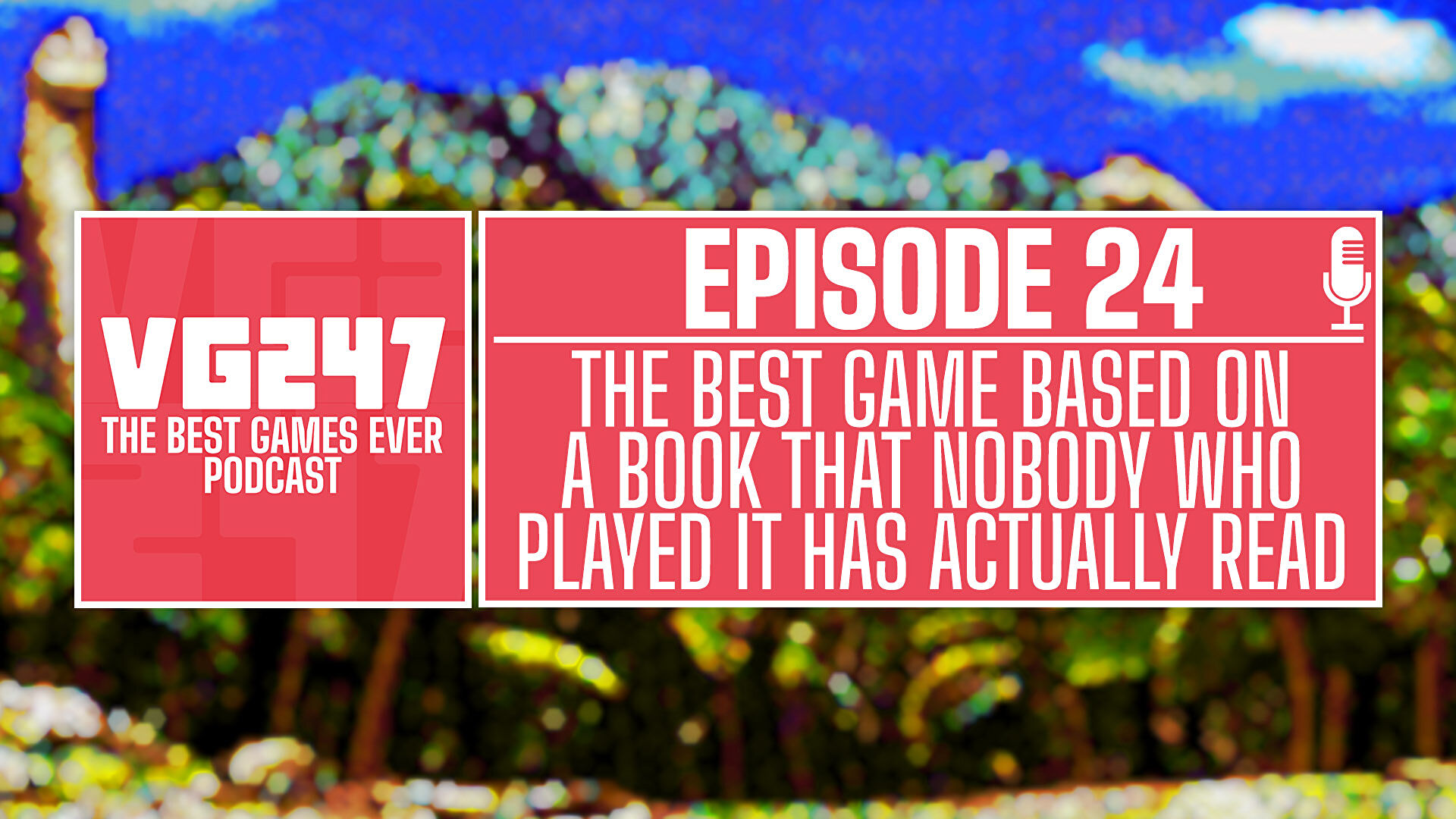VG247’s The Best Games Ever Podcast – Ep.24: The best game based on a book that nobody who played it has read Leave a comment
I played the Discworld video game, remarkably, before I’d read a single Terry Pratchett book. I don’t know if that speaks more to the cultural cache of video games, or to my own literary ignorance growing up, but getting to the age of 11 in the United Kingdom of the late twentieth century without having read a Terry Pratchett book is quite an astonishing un-achievement. One that I quickly remedied, of course.
This was decades ago (I am old), and you’d think that, if anything, the acceptance of video games as a valid form of artistic expression would have progressed somewhat since then. I’m not sure it has, although mercifully we do seem to have seen the back of the dreaded “are games art?” debate, if only because everyone who ever got involved in it either died or got so bored of the subject that they happily conceded that it didn’t matter either way. Who cares, just shoot the demons dumbass (or, indeed, the demon’s dumb ass).
But I can’t help but think that Pratchett, by all accounts a deeply thoughtful, kind hearted, and forward-thinking man, would have had a more progressive attitude toward my getting into his work via a PS1 game starring Eric Idle rather than, say, by being made to read Only You Can Save Mankind as part of a syllabus. More progressive than, say, Andrzej Sapkowski’s, who is on record about his view that gaming is an unserious form of entertainment that has trivialised his work.

